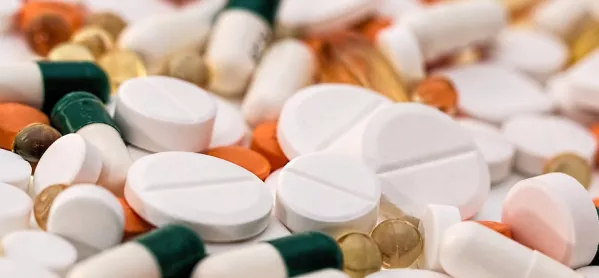After a gradual decrease in drug use among school students, from about 30 per cent in 2001 to 15 per cent in 2014, it is disappointing that, for a variety of reasons, drug use is currently increasing.
Specifically, data last week showed that there had been more than 2,600 cases involving drugs on school grounds reported to police in England and Wales between 2016 and 2019, with the number increasing from 589 in 2016 to 751 in 2019.
Schools will be looking at various ways to manage drug-related incidents among their students, and drug education can form part of this response.
In September 2020, drug education will become a compulsory part of the Relationships Education, Relationships and Sex Education (RSE) and Health Education curriculum.
Tackling student drug use
While most schools will have already been delivering drug education, this increased focus may help to address current drug issues in school.
Research suggests that in order for drug education to be effective, it needs to go further than just providing information about drugs - it should also include life skill approaches.
This can include exploring values and attitudes, and helping students to develop personal and social skills.
Can a student manage a situation where there is peer pressure (or influence) to do something they don’t want to do? Would they be able to recognise grooming?
Clearly, schools cannot be expected to deal with these issues by themselves - they need partnerships with and support from a wide variety of national and local agencies.
Teachers may need training - for example, how might they spot signs of a student involved in a “county lines” drugs gang? How can they best deliver an effective life skills curriculum?
Up-to-date approaches
Management teams and governors will want to review their policies and procedures.
Students may need help navigating their way through challenging circumstances that they could find themselves in - or just an opportunity to talk about their beliefs and thoughts about drug use in a safe, non-judgemental environment.
Now there is the added pressure of doing all of this while keeping students safe from Covid-19.
In normal times, we have trained educators who can help to take lessons with students of all ages, train staff and lead events for parents.
During the current Covid-19 crisis, while our educators have not been able to work directly with students and adults, we have been developing online resources mapped against the curriculum for teachers to use with their students.
Extra work that’s worth the effort
These include activities and lesson plans that teachers can use to deal with the additional workload of planning content to teach in the new curriculum areas.
There will also be activities that look at and discuss issues relating to the development of county lines, which is probably the most pressing issue around drugs at this time.
There is more than enough for teachers - at all levels - to have to think about right now and it would be easy for this issue to be lost in the noise of school reopening and attainment issues.
However, we must all focus and work together if we are to reverse this worrying return to drug use levels that we had worked so hard to tackle and reduce.
Sarah Brighton is the CEO of Hope UK, a charity providing drug and alcohol education and training
